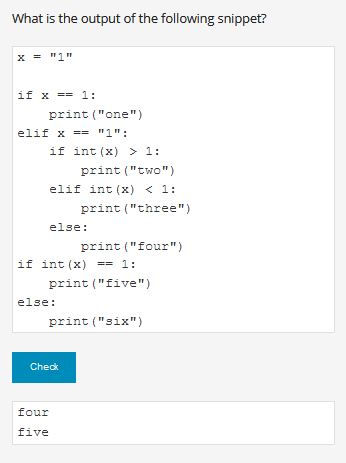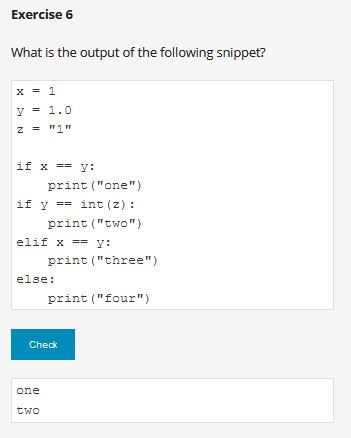int()
- Jun 10, 2020
- 2 min read
The int() function converts the specified value into an integer number.
The int() function returns an integer object constructed from a number or string x, or return 0 if no arguments are given.
Syntax:
int(x=0)
int(x, base=10)
The base value tells python to interpret the given string to be a value of a different base.
For example, the 1011 in base 2 is 11. Thus, int('1011', 2) returns 11. On the other hand, 1011 in base 3 is 31. Thus, int('1011', 3) returns 31.
Decimals are in base 10, which is why the default value of base is 10.
Scenario
As you surely know, due to some astronomical reasons, years may be leap or common. The former are 366 days long, while the latter are 365 days long. Since the introduction of the Gregorian calendar (in 1582), the following rule is used to determine the kind of year:
if the year number isn't divisible by four, it's a common year;
otherwise, if the year number isn't divisible by 100, it's a leap year;
otherwise, if the year number isn't divisible by 400, it's a common year;
otherwise, it's a leap year.
Look at the code in the editor - it only reads a year number, and needs to be completed with the instructions implementing the test we've just described.
The code should output one of two possible messages, which are Leap year or Common year, depending on the value entered.
It would be good to verify if the entered year falls into the Gregorian era, and output a warning otherwise: Not within the Gregorian calendar period.
year = int(input("Enter a year: ")) if year < 1582: print("Not within the Gregorian calendar period") elif year%4 != 0: print("Common year") elif year%100 != 0: print("Leap year") elif year%400 != 0: print("Common year") else: print("Leap year")
Test Data
Sample input: 2000
Expected output: Leap year
Sample input: 2015
Expected output: Common year
Sample input: 1999
Expected output: Common year
Sample input: 1996
Expected output: Leap year
Sample input: 1580
Expected output: Not within the Gregorian calendar period










Comments